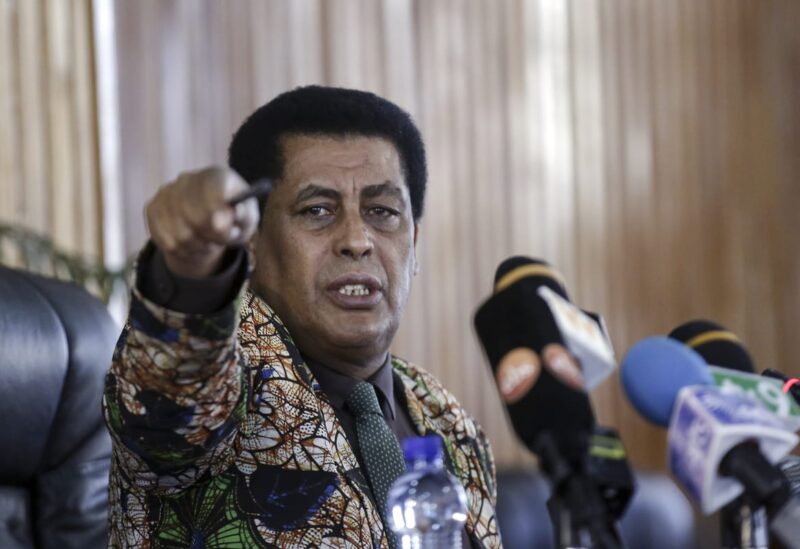
Ethiopian Foreign Ministry spokesperson Dina Mufti
Spokesman for the Ethiopian Foreign Ministry, Dina Mufti, said that the historic agreements to share Nile waters that downstream countries Egypt and Sudan hold on to are “unreasonable and unacceptable.”
“The threats made by downstream countries regarding the Renaissance Dam are useless,” Mufti added in a briefing to reporters yesterday, adding that his country is counting on the resumption of the Renaissance Dam negotiations under the auspices of the African Union (AU).
On Sunday, the Ethiopian Minister of Water, Irrigation and Energy Seleshi Bekele said that the Renaissance Dam forms part of his country’s right to develop and that there is a “conspiracy” to thwart the construction of the dam and even to “undermine the existence” of Ethiopia, in light of the faltering negotiations between Cairo, Khartoum, Addis Ababa over the dam crisis, which has been going back and forth for years without achieving any significant breakthrough.
“The Renaissance Dam is a right of our country to develop freely, and all Ethiopians must unite, understand and stand together through the main challenges facing our country today in order to build the dam and end poverty,” Bekele tweeted today.
He added: “It has become clear that there is a conspiracy to thwart our efforts and undermine our very existence, so we must all persevere and do our part.”
Sudanese Irrigation Minister, Yasser Abbas, confirmed on Sunday that the legal teams in his country are ready to file a lawsuit against the Ethiopian government over the Renaissance Dam.
Ethiopia is building a $ near the border with Sudan it says will provide the country with much-needed electricity and economic regeneration. Egypt believes it will restrict its access to Nile waters.
Egypt is almost entirely dependent on Nile water, receiving around 55.5 million cubic metres a year from the river, and believes that filling the dam will affect the water it needs for drinking, agriculture, and electricity.
Cairo wants Ethiopia to guarantee Egypt will receive 40 billion cubic metres or more of water from the Nile. Ethiopian Irrigation Minister Seleshi Bekele said Egypt has abandoned this demand, but Egypt insists it ha5 billion damsn’t and issued a statement to this effect.
There is also an unresolved issue over how fast the dam will be filled, with Egypt fearing if it is filled too quickly, it could affect the electricity generated by the Aswan High Dam.